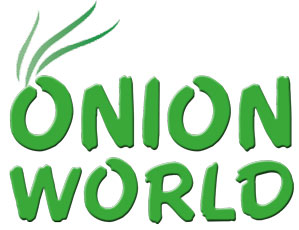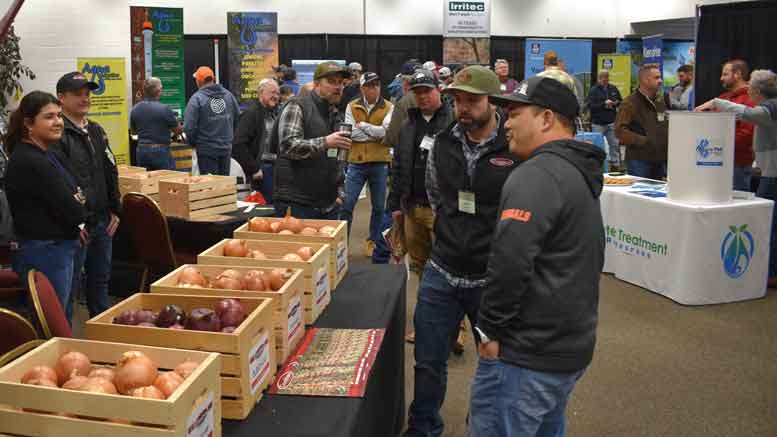|
Click to listen to this article
|
Recycling Drip Tape
Story and photos by Dave Alexander
If the thought of making moonshine in your backyard lead you to read this article, then chalk one up for salacious headlines. We’re not going to give you any hooch recipes here, but if you use drip to irrigate, or plan to in the future, then read on.
At the 64th annual meeting of the Idaho and Malheur County Onion Growers’ Associations held February 6 in Ontario, Oregon, Marina Denny with Oregon State University (OSU) talked about how to address a big problem facing drip irrigators – what to do about used drip tape.
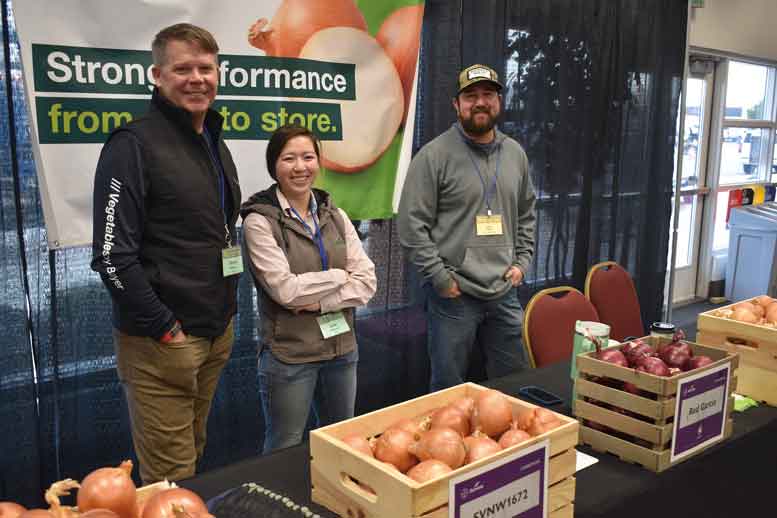
Every year, millions of pounds of drip tape are pulled from the ground. Rather than using the non-sustainable method of dumping it on the north forty, growers only have limited options to dispose of the old tape. Most landfills won’t accept the tape, or will only in restricted amounts. Burning plastic releases dangerous gasses and is illegal in most states. There are companies in the Treasure Valley and Washington, like Clearwater Supply, that will collect old drip tape and ship it out for recycling the plastic. Currently, this is the best option, but what if old tape could be converted to fuel for tractors on the farm?
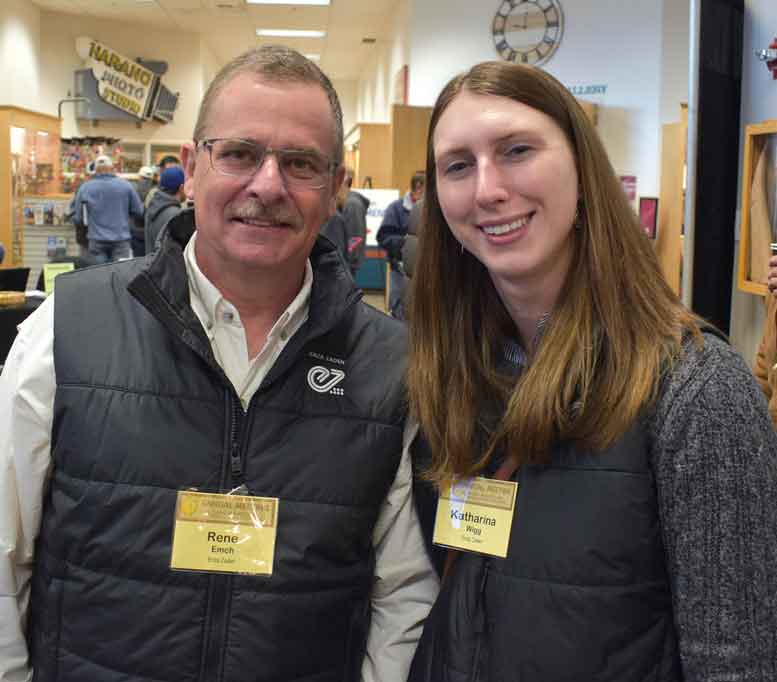
Pyrolysis
OSU has already built a small-scale, 1Kg reactor (or still, as we like to say) to turn ag plastics into tractor-ready red diesel using pyrolysis. Pyrolysis, in this case, is the heating of plastic to extremely high temperatures to break it down and vaporize it. The vapor is the re-condensed into diesel. One kilogram of drip tape yields one liter of fuel.
Does it make sense to build one of these open-source reactors on your farm? The construction only takes three components, they are simple to operate and only need minimal maintenance. The idea is intriguing, but in reality it will all come down to return on investment for growers. OSU will be working on ROI numbers soon.
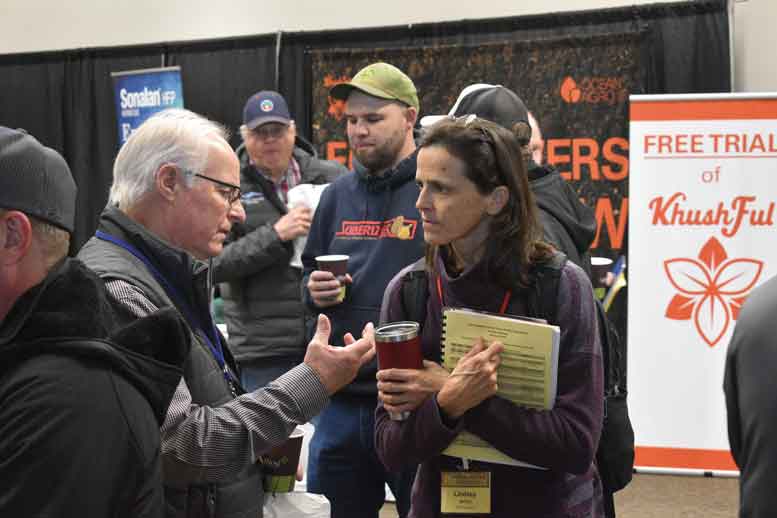
Perhaps a better solution is placing a large-scale commercial unit nearby. PDO Tech has a 500kg unit available that may be a solution for a grower collective or a single grower that uses a lot of tape. The company operates a reactor currently in western Oregon, where a lot of tape gets sent for recycling.
Sustainability
Vegetable processors and large retailers are already pushing for sustainability and zero-carbon footprint farms. If you are not currently recycling drip tape, it’s time to do it on your own before you are forced to. Plus, it’s the right thing to do and it opens up a lot of moonshine jokes.
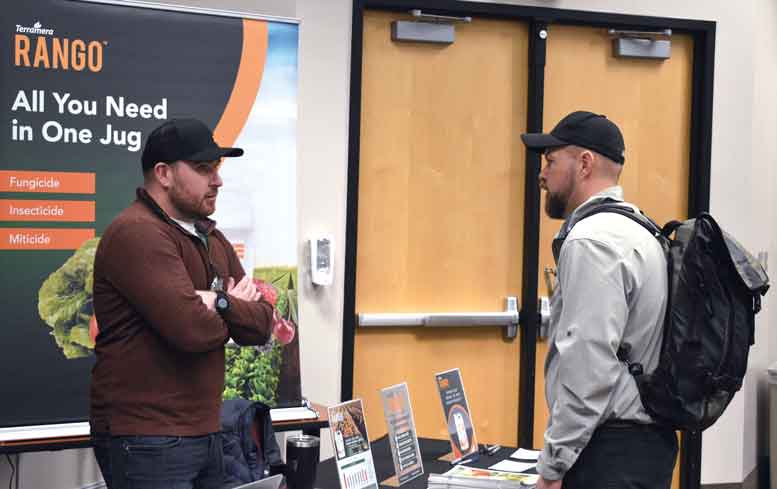
Denise Anderson, CEO of Clearwater Supply is looking forward to plastic-to-fuel technology, but she also knows there is much work ahead to get there.
She stated, “As we look forward to the future, envisioning recycled products being transformed into fuel represents a beacon of innovation and sustainability. Until such technology becomes both feasible and readily available, we must persist with other sustainable methods, ensuring our commitment to the environment remains steadfast and adaptable.”
OSU estimates that there are 1.6 million pounds per year of drip tape used in the Treasure Valley alone. While that may sound like an immense amount of tape to get rid of, the plus side of this is that’s over 191,000 gallons of potential diesel fuel.

Resources:
Clearwater Supply: cwsupply.com
PDO Tech: pdotech.com
OSU: Search “OSU plastic to fuel” on Youtube
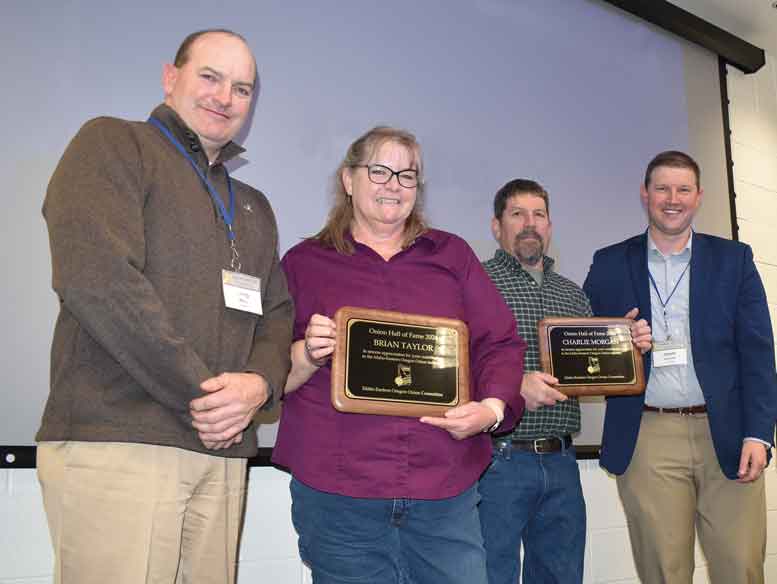
In recognition of their involvement in the onion industry, Brian Taylor and Charlie Morgan were inducted into the Treasure Valley Onion Hall of Fame during the annual meeting of the Idaho and Malheur County Onion Growers’ Associations.
Brian Taylor
Brian Taylor was a longtime employee of Skeen Farms in Nyssa, Oregon. He took a job on the farm in 1984, beginning what would become a 38-year career and family-like friendship with the Skeen family. Taylor enjoyed learning and adapting to new ways of farming. As the years went on, he was known to be able to fix almost anything or have a shortcut that would make a repair go more smoothly. Taylor served on the board of the Onion Research Committee from 2004 to 2023 and as chairman from 2009 to 2023, roles he felt passionate about. He passed away in March 2023.
Charlie Morgan
Charlie Morgan enjoyed more than 30 years in the onion and potato storage business. After earning an associate’s degree in electrical technology, he began working for Argonne National Laboratory in Idaho Falls, Idaho, as a research technician and nuclear operator. Morgan became involved with onion storage in 1970 when he joined Industrial Ventilation Inc., a new startup. He was the company’s first fulltime employee, and he later became part owner. He is said to have been instrumental in designing equipment and methods commonly used in onion storage today. He retired from IVI in 2003.
